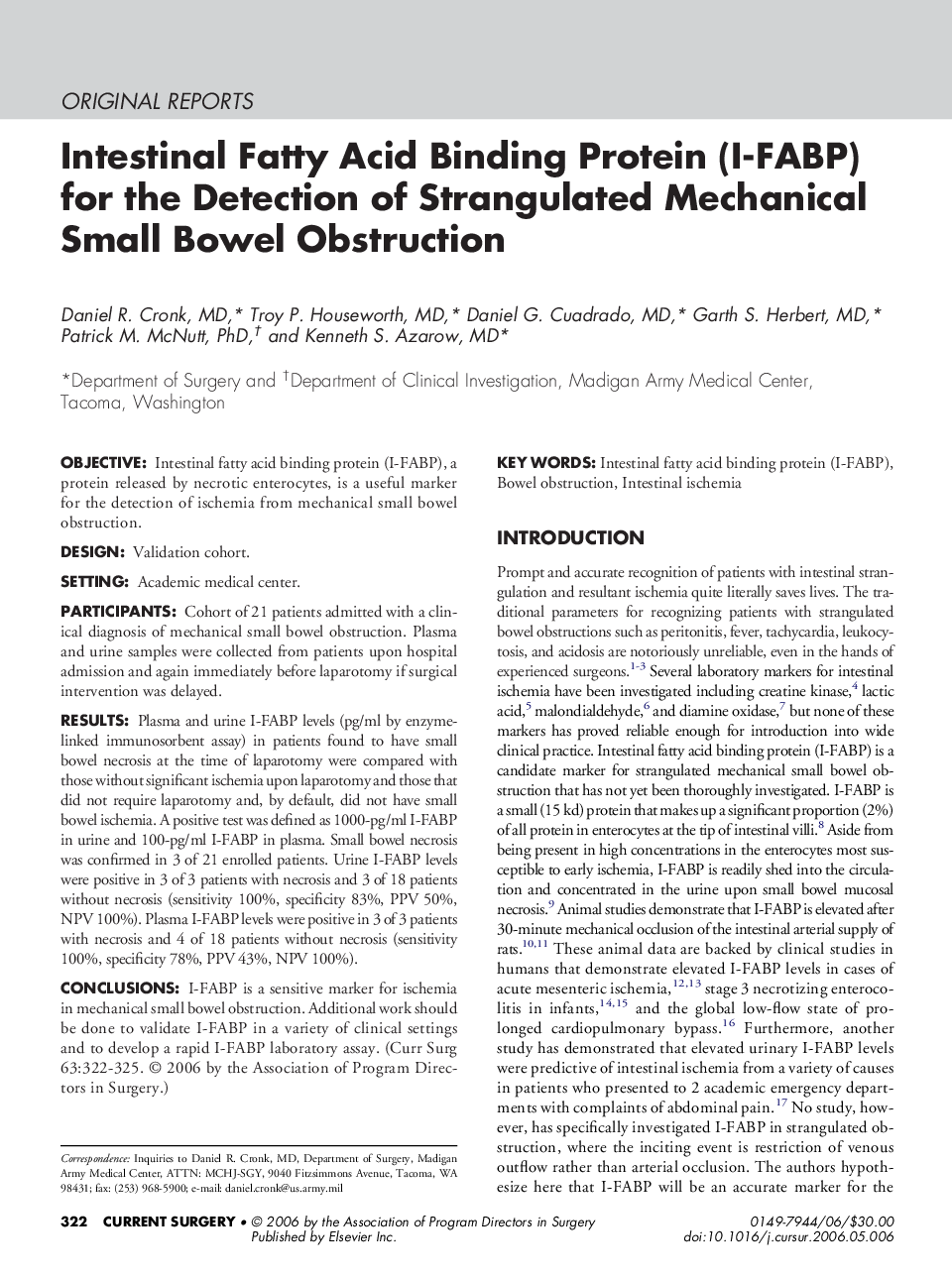| Article ID | Journal | Published Year | Pages | File Type |
|---|---|---|---|---|
| 4284348 | Current Surgery | 2006 | 4 Pages |
ObjectiveIntestinal fatty acid binding protein (I-FABP), a protein released by necrotic enterocytes, is a useful marker for the detection of ischemia from mechanical small bowel obstruction.DesignValidation cohort.SettingAcademic medical center.ParticipantsCohort of 21 patients admitted with a clinical diagnosis of mechanical small bowel obstruction. Plasma and urine samples were collected from patients upon hospital admission and again immediately before laparotomy if surgical intervention was delayed.ResultsPlasma and urine I-FABP levels (pg/ml by enzyme-linked immunosorbent assay) in patients found to have small bowel necrosis at the time of laparotomy were compared with those without significant ischemia upon laparotomy and those that did not require laparotomy and, by default, did not have small bowel ischemia. A positive test was defined as 1000-pg/ml I-FABP in urine and 100-pg/ml I-FABP in plasma. Small bowel necrosis was confirmed in 3 of 21 enrolled patients. Urine I-FABP levels were positive in 3 of 3 patients with necrosis and 3 of 18 patients without necrosis (sensitivity 100%, specificity 83%, PPV 50%, NPV 100%). Plasma I-FABP levels were positive in 3 of 3 patients with necrosis and 4 of 18 patients without necrosis (sensitivity 100%, specificity 78%, PPV 43%, NPV 100%).ConclusionsI-FABP is a sensitive marker for ischemia in mechanical small bowel obstruction. Additional work should be done to validate I-FABP in a variety of clinical settings and to develop a rapid I-FABP laboratory assay.
